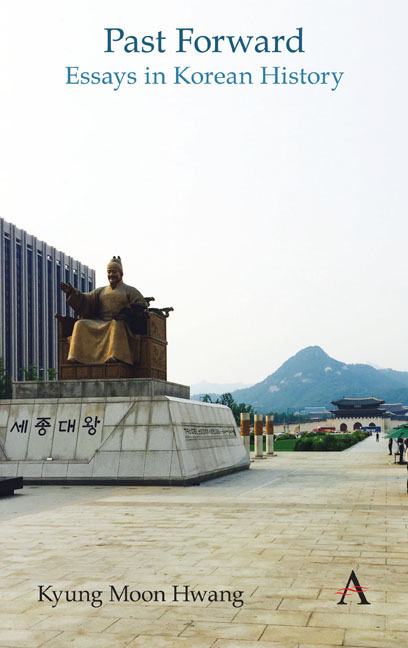Book contents
- Frontmatter
- Contents
- List of Figures
- Foreword
- Chronologies of Korean History
- Themes
- Acknowledgments
- Note on Romanization and Spelling
- Part I Circulating History
- Part II Durable Traditions
- Part III Ancient Remains
- Part IV Dynastic Depths
- Part V Modern Origins
- Part VI Challenges of Nationhood
- Part VII History Makers
- 41 Demythologizing King Sejong the Great
- 42 Modern Lady Shin Saimdang
- 43 Five Potential National Heroes
- 44 A Portrait of Great Painters
- 45 Four Young Men from 1884
- 46 Na Hye-seok
- 47 Hyundai Motors and Chung Ju-yung
- 48 Yun Isang and the East Berlin Case
- 49 Ri Young-hee, Iconoclast for Democracy
- 50 Kim Young Sam's Broad Historical Appeal
- 51 Kim Dae Jung's Historic Election
- Part VIII External Presences
- Part IX Trials of Modernization
- Part X Gripped by the Past
- Index
51 - Kim Dae Jung's Historic Election
from Part VII - History Makers
- Frontmatter
- Contents
- List of Figures
- Foreword
- Chronologies of Korean History
- Themes
- Acknowledgments
- Note on Romanization and Spelling
- Part I Circulating History
- Part II Durable Traditions
- Part III Ancient Remains
- Part IV Dynastic Depths
- Part V Modern Origins
- Part VI Challenges of Nationhood
- Part VII History Makers
- 41 Demythologizing King Sejong the Great
- 42 Modern Lady Shin Saimdang
- 43 Five Potential National Heroes
- 44 A Portrait of Great Painters
- 45 Four Young Men from 1884
- 46 Na Hye-seok
- 47 Hyundai Motors and Chung Ju-yung
- 48 Yun Isang and the East Berlin Case
- 49 Ri Young-hee, Iconoclast for Democracy
- 50 Kim Young Sam's Broad Historical Appeal
- 51 Kim Dae Jung's Historic Election
- Part VIII External Presences
- Part IX Trials of Modernization
- Part X Gripped by the Past
- Index
Summary
On December 18, 1997, Kim Dae Jung was elected president of South Korea, leading to the country's first-ever peaceful transfer of power to the opposition. That alone would make this a momentous event, but the election's historical significance was even greater.
First, Kim Dae Jung's electoral victory represented the culmination of a long political career, most of which was spent in opposition to the South Korean ruling system. He helped lead the charge for democratization, and short of being killed, no one in the democracy movement suffered more than Kim Dae Jung. In the 1970s and 1980s, his life followed a repeated cycle of resistance, incarceration, hardship and freedom.
In 1973, after having come close to defeating Park Chung-Hee in the 1971 presidential election despite the many disadvantages he faced, Kim was kidnapped and tortured, and came within a few meters and minutes of losing his life. In an extraordinary turn of events, however, foreign pressure on the Park dictatorship intervened to save him. He spent the rest of that decade, however, more or less in domestic exile, under surveillance and the constant threat of more brutal government action against him.
In 1980, a few months after winning his freedom following Park's assassination, the ensuing military dictatorship of Chun Doo-hwan blamed Kim for arousing mass opposition protests, arrested him, and even sentenced him to death. His life again was spared thanks to foreign intervention–even from the pope, as Kim was a devout Catholic. And once again, he was sent into exile, this time abroad to the United States.
His return to his homeland in the mid-1980s helped charge the intensifying democratization movement, and after the 1987 breakthrough, it appeared that finally Kim would get a fair shot at becoming the country's political leader. This was not to be, however. Not only did Kim lose the 1987 election, he lost again in 1992, both times to the ruling party's candidate. So his victory in 1997, in his fourth attempt as an opposition candidate on the presidential ballot, came at the end of a decades-long journey to (peacefully) gain power. It was, in a way, the reward for dogged determination and undeterred ambition.
- Type
- Chapter
- Information
- Past ForwardEssays in Korean History, pp. 151 - 152Publisher: Anthem PressPrint publication year: 2019



